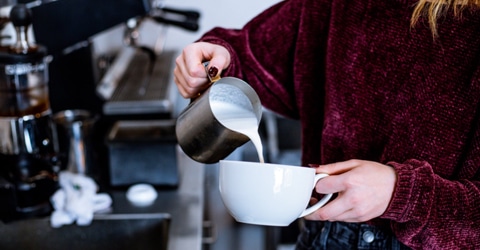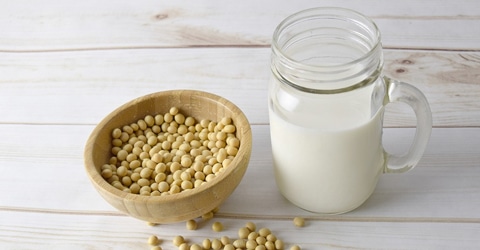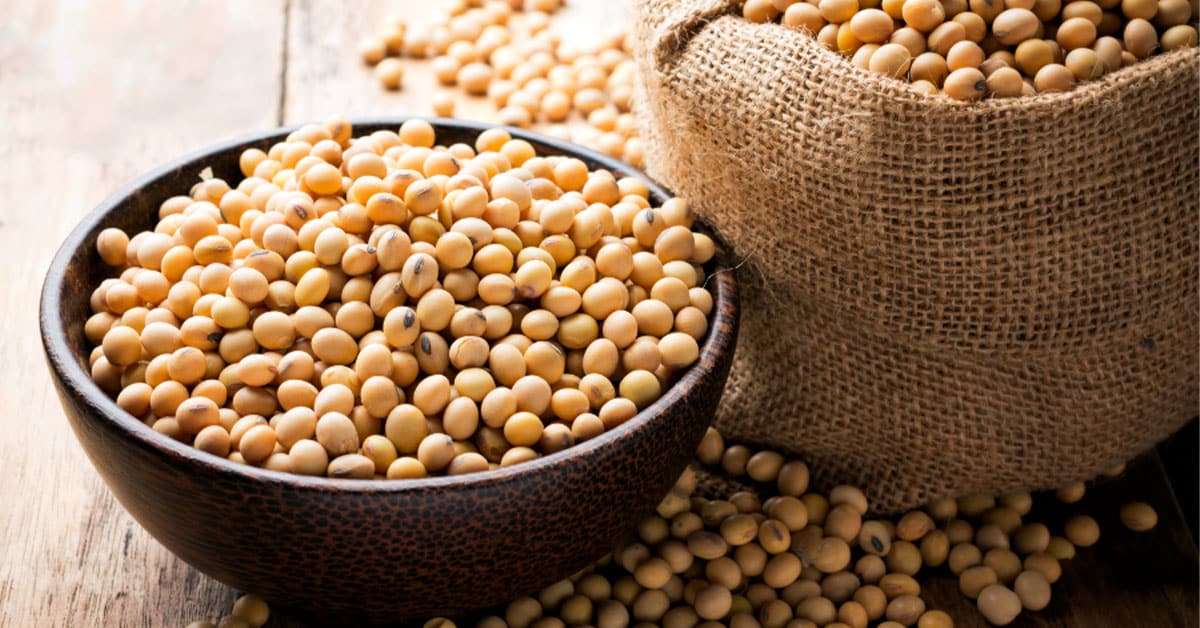

If you could reduce your relative risk of breast cancer by 80 percent, why wouldn’t you? A recent study found that women who drink dairy milk could increase their risk of developing breast cancer by up to 80 percent compared to women who drink soy milk.[1] Unbiased by either soy or dairy industry funding, this research was commissioned by the National Cancer Institute at the National Institutes of Health and the World Cancer Research Fund. Here is what you need to know.
The Study Basics
The study included 52,795 adult women over the course of seven years. Participants were intentionally taken from the Adventist Health Study-2 because many Adventists follow a vegetarian diet and tend to consume significantly more soy than is common for the standard American diet. All participants filled out a detailed food questionnaire upon enrollment, and a small cohort was selected to provide further twenty-four-hour food recalls and urine samples over the course of the study to ensure accuracy. At the conclusion of the study, 1,057 participants had developed breast cancer.
How Much Milk Increases Your Risk
Through further analysis, the researchers found a dramatic increase in risk with as little as one-fourth to one-third of a cup margin. Women who reported drinking eight ounces a day increased their risk of breast cancer by 50 percent, and those who consumed two to three glasses of dairy milk escalated their risk by up to 80 percent compared to the women who did not drink any dairy milk. In other words, a person with a baseline risk of 12 percent (the average) would increase their risk by 50 percent (up to 18 percent), by consuming one eight-ounce serving per day.
The Takeaways
While this study does not prove dairy milk causes cancer, it opens up the field of study and provides a strong indicator of the harmful effects of dairy compared to replacements like soy. The researchers also suggested that the greatest benefits of soy milk in relation to breast cancer may not be in soy itself, but in the exclusion of dairy. Also important is that both full- and reduced-fat milks demonstrated similar results, meaning the fat content of the dairy was not likely contributing to the elevated risks.
This is not the first study to demonstrate a positive association between dairy and increased breast cancer risk. In a survey of breast cancer cases across forty countries and five continents, cows’ milk ranked second (only under meat) on a list of foods most correlated with breast cancer.[2] Cows’ milk has also been associated with other hormone-dependent cancers, including ovarian and prostate cancers.[2][3] Researchers believe the natural hormones found in all cows’ milk—including estrogen and IGF-1—may be the cause for this increased risk of specific cancers. This most recent study by the National Cancer Institute adds to the growing body of evidence linking cows’ milk to cancer. While not absolute, the correlation is strong enough to make anyone rethink their dairy consumption. It’s simply not worth the unnecessary risk.
No one is invincible, but we all have the power to make very simple lifestyle changes to prolong our health. We make these small choices every day when we choose to wear sunscreen, drink water instead of soda, and wash our hands. We know we still might fall ill, but we nonetheless continue these preventative daily habits. Ditching dairy is a similar choice everyone can make to reduce their individual risk for breast cancer. In fact, it could be the most significant choice you make for your health—because we all deserve the best odds when it comes to living cancer-free.
**This article is reprinted with permission from Switch4Good. It has been edited to conform with CNS editorial guidelines
References
- Fraser GE, Jaceldo-Siegl K, Orlich M, Mashchak A, Sirirat R, Knutsen S. Dairy, soy, and risk of breast cancer: those confounded milks. Int J Epidemiol. 2020;49(5):1526-1537. doi:10.1093/ije/dyaa007
- Ganmaa D, Sato A. The possible role of female sex hormones in milk from pregnant cows in the development of breast, ovarian and corpus uteri cancers. Med Hypotheses. 2005;65(6):1028-1037. doi:10.1016/j.mehy.2005.06.026
- Torfadottir JE, Steingrimsdottir L, Mucci L, et al. Milk intake in early life and risk of advanced prostate cancer. Am J Epidemiol. 2012;175(2):144-153. doi:10.1093/aje/kwr289
Copyright 2026 Center for Nutrition Studies. All rights reserved.
Deepen Your Knowledge With Our
Plant-Based Nutrition
Certificate
Plant-Based Nutrition Certificate
- 23,000+ students
- 100% online, learn at your own pace
- No prerequisites
- Continuing education credits







